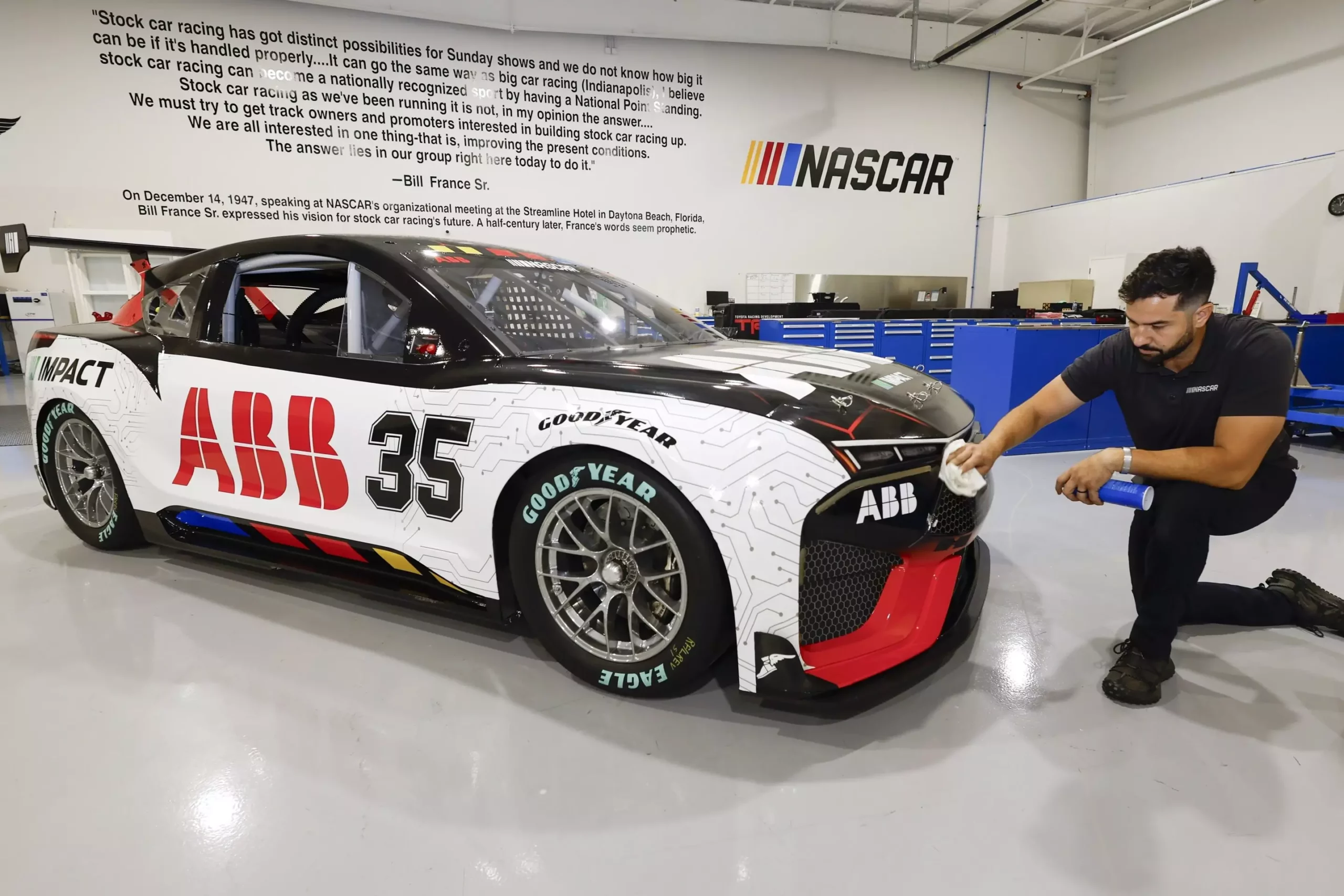The landscape of NASCAR is shifting, with the unveiling of its first electric racecar in downtown Chicago. This groundbreaking development marks a major departure from the traditional roaring engines that fans are accustomed to. The collaboration between NASCAR and industry giants such as Chevrolet, Ford, Toyota, and ABB aims to showcase high-performance electric vehicles and generate excitement around electric racing. Riley Nelson, NASCAR’s head of sustainability, emphasizes the goal of portraying electric vehicles as cool, fun, and accessible to fans of the sport.
Driving this electric racecar prototype is none other than semi-retired NASCAR driver David Ragan. His experience behind the wheel offers valuable insights into the unique qualities of the electric racecar. Unlike its gasoline-powered counterparts, this cutting-edge vehicle emits a hum rather than a thunderous roar. The sensory experience for Ragan was unparalleled, with squealing tires and the scent of brakes replacing the overpowering noise and exhaust heat of traditional cars. The car itself represents a departure from the norm, taking the form of a crossover utility vehicle with exceptional acceleration and braking capabilities.
Fan Engagement and Environmental Impact
One of the key drivers behind NASCAR’s foray into electric racing is fan engagement. Market research has shown that over half of avid NASCAR fans would be more inclined to consider purchasing an electric vehicle after being exposed to it through racing. Eric Warren of General Motors underscores the importance of leveraging racing as a platform for promoting energy conservation and innovation. By showcasing the capabilities of electric vehicles on the racetrack, NASCAR aims to educate fans and spark interest in sustainable technologies.
The environmental implications of electric racing cannot be overlooked. Traditional gas-powered cars emit pollutants that contribute to climate change and environmental degradation. By transitioning to electric vehicles, NASCAR is taking a proactive step towards reducing its carbon footprint and promoting sustainability. The shift towards electric racing not only aligns with broader industry trends but also reflects NASCAR’s commitment to environmental stewardship.
Shifting Gears: Embracing Innovation
The introduction of the electric racecar represents a paradigm shift for NASCAR, signaling a departure from conventional racing norms. In an era marked by technological advancement and sustainability goals, NASCAR’s embrace of electric racing underscores its commitment to staying relevant and forward-thinking. The collaboration with ABB as the official electrification partner further exemplifies NASCAR’s dedication to integrating renewable energy sources into its operations.
Looking ahead, NASCAR’s vision for the future includes sustainable racing fuel, widespread recycling initiatives, and a transition to 100% renewable electricity at its facilities and tracks. The incorporation of plant-based materials and exploration of hydrogen-powered cars highlight NASCAR’s ongoing efforts to explore innovative and eco-friendly racing solutions. By partnering with leading industry players and staying at the forefront of technological innovation, NASCAR is poised to shape the future of motorsports.
The introduction of the electric racecar marks a significant milestone in NASCAR’s evolution. By embracing electric racing and prioritizing sustainability, NASCAR is not only transforming the fan experience but also driving positive change in the racing industry. As electric vehicles become increasingly mainstream, NASCAR’s commitment to innovation and environmental responsibility sets a new standard for the future of racing.


Leave a Reply